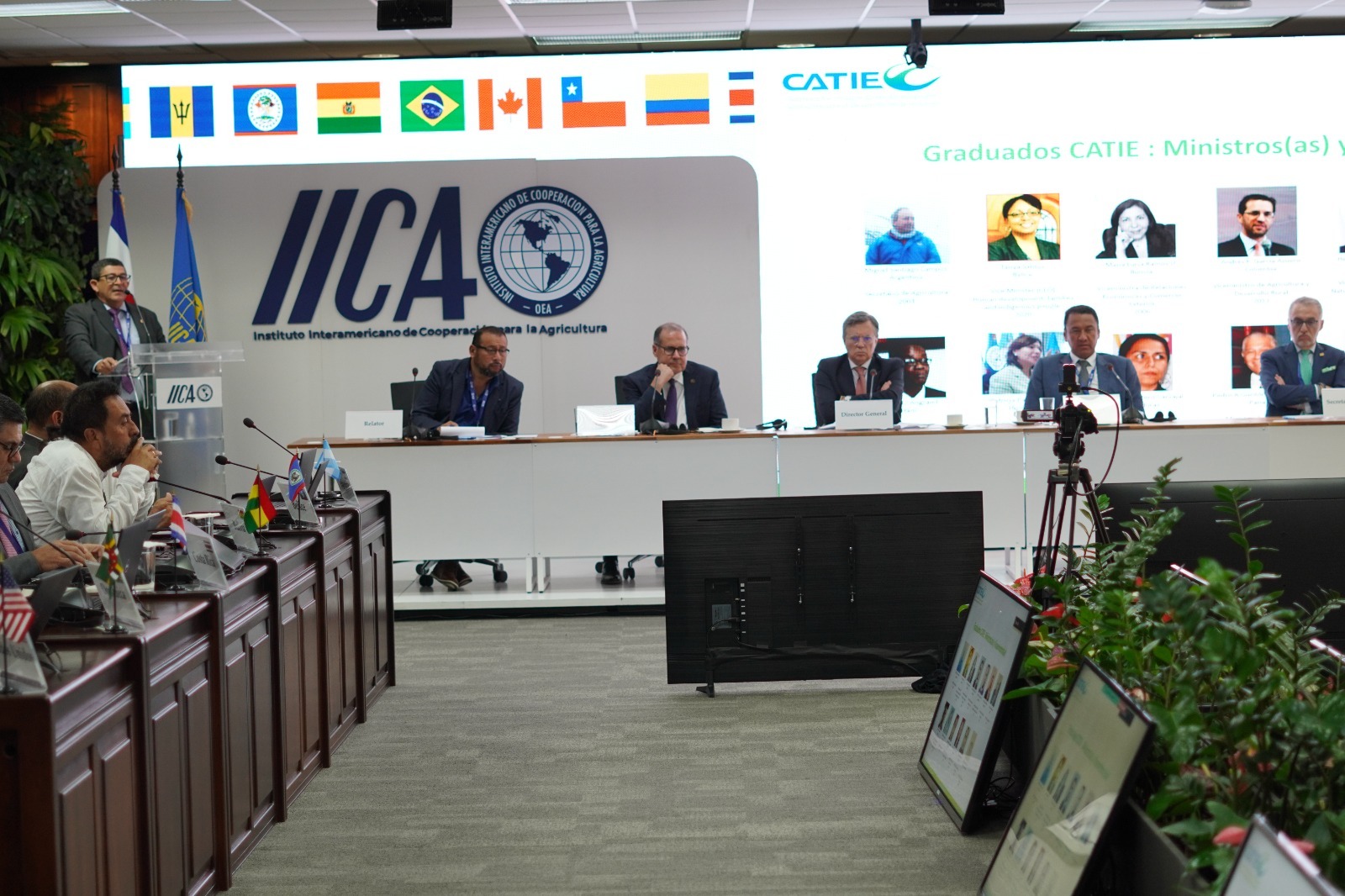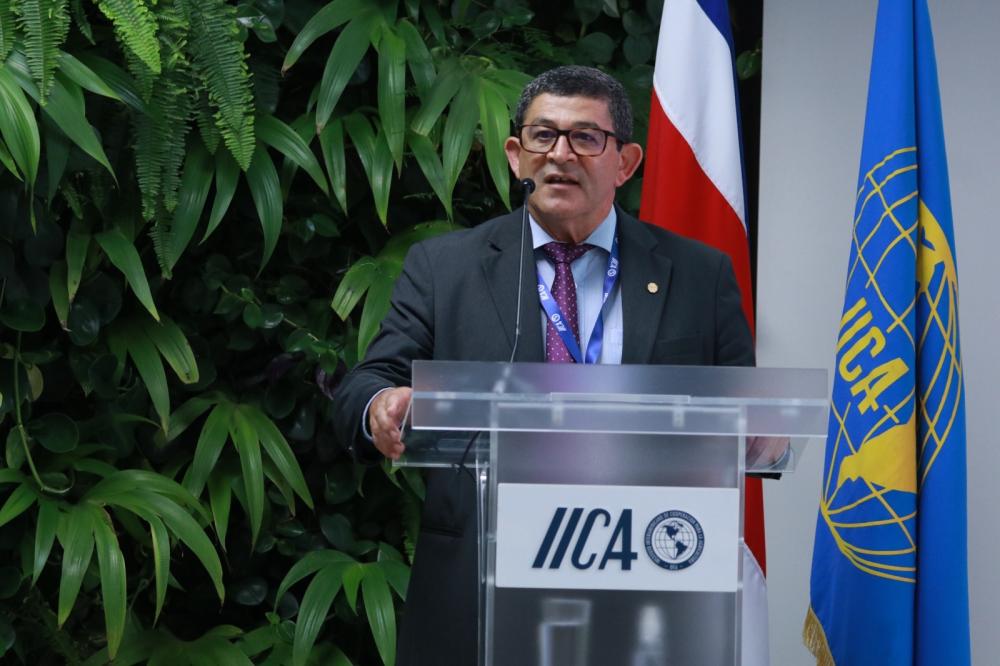The “Dr. Manuel Otero Inter-American Chair: Innovations in the Agri-Food Systems of the Tropics,” in recognition of the more than 35 years that the Director General of IICA has dedicated to the promotion and development of tropical and temperate agriculture in the Americas

San José, 16 August 2024 (IICA). The Tropical Agriculture Research and Higher Education Center (CATIE) announced the creation of the “Dr. Manuel Otero Inter-American Chair: Innovations in the Agri-food Systems of the Tropics,” in recognition of the Director General of the Inter-American Institute for Cooperation on Agriculture (IICA) and his record of achievement over the more than 35 years he has dedicated to the promotion and development of tropical and temperate agriculture in the Americas.
The Director General of CATIE, Luis Pocasangre, announced the decision in his address to ministers and deputy ministers of agriculture from the region during the 2024 meeting of IICA’s Executive Committee.
The honor was bestowed on Manuel Otero in recognition of his unwavering efforts to strengthen research and innovation platforms such as the National Fund for the Reactivation and Modernization of Agricultural Activity (FONAGRO), the Regional Fund for Agricultural Technology (FONTAGRO), the Cooperative Program for the Development of Agrifood and Agricultural Technology in the Southern Cone (PROCISUR), the Regional Cooperative Program for the Technological Development and Modernization of Coffee Cultivation (PROMECAFÉ), as well as his strong emphasis on joint actions in support of food security, working with international research centers such as the International Maize and Wheat Improvement Center (CIMMYT).
“First and foremost, Manuel is a notable CATIE graduate. He has positioned tropical agriculture on the global food security agenda and has also done extensive work in extension and capacity building, as well as in adapting tropical agriculture to new technologies,” Pocasangre emphasized.
CATIE’s Director General also highlighted the extension and training initiatives for farmers that Otero has implemented at IICA Headquarters, such as the Digital Fabrication and Community Innovation Lab (FabLab-LINC) and the Interpretive Center for Tomorrow’s Agriculture (CIMAG).
He also underscored Otero’s contribution to the empowerment of rural women as managers of sustainable agricultural enterprises, and his support for rural youth through the use of technologies to increase the productivity of agricultural systems and continue producing healthy food for future generations.

Manuel Otero, a veterinarian from Argentina, emphasized the importance of interagency partnerships and expressed his gratitude for his time at CATIE: “I’m a man who comes from temperate agriculture, and I wish to acknowledge the fact that moving from Buenos Aires to Turrialba changed my life. I fell in love with and came to recognize CATIE as a key institution that today is playing an essential role, because the future of humankind depends on the tropics.”
The Dr. Manuel Otero Inter-American Chair: Innovations in the Agri-food Systems of the Tropics has been established because 39% of the world’s farmland is located in these regions, which contain the greatest diversity of crops anywhere on the planet and are home to 40% of the global population.
CATIE is located in Turrialba, a rich agricultural production area of Costa Rica. Its campus is where the Inter-American Institute of Agricultural Sciences, created a year earlier, was inaugurated in 1943. This evolved into the current Inter-American Institute for Cooperation on Agriculture (IICA), whose Headquarters are situated in the Costa Rican capital, San José.
More information:
Institutional Communication Division.
comunicacion.institucional@iica.int











